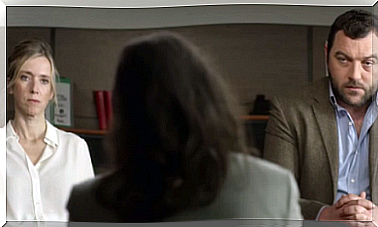Sometimes The Best Way To Help Is Not To Help Anymore

Help is often overrated. We think that help is synonymous with kindness, solidarity and hospitality, but the problem is that it is not always a reflection of cooperation between people who share a common goal. Rather, people usually help to take care of something that they think the other person cannot do or cannot do well, that they are too slow, too young or too old for it.
You could call this attitude a kind of “toxic aid” because it solves the other person’s problems without giving them the chance to face their own challenges. In addition to being unable to develop their skills, the help sends a clear message that you don’t think they can.
Aid is a positive thing in society’s eyes, but if you look a little closer you can find many examples of people whose skills are underdeveloped because some “good Samaritans” solved too many of their challenges for them even though they wanted their help not really needed. There are, for example, those people whose parents did their chores for them, who completely eliminated all their social problems and all kinds of frustrations. Therefore, even if we have the best of intentions with our help, we sometimes disregard those we are helping and ignore their abilities, opinions, and attitudes.
Help by not helping
Doing things for other people is positive as long as it is a collaboration or cooperation. For example, if two people are trying to start a business together, they need to work together. Perhaps one of them will set up the office and the other will take care of advertising. This would be an example of a real collaboration that enriches both parties as both benefit from their efforts and it makes success more likely.

However, if help is only one-way, it can be harmful as it decreases the other person’s abilities and encourages destructive thoughts. You may think that:
- Someone really need help
- You are obliged to help
- It is enriching for you to help
But nobody benefits from this kind of help. First, because the person being helped is getting the message that they are unable to solve their problem on their own. And that’s a fatal blow to their self-esteem. Second, because this help plants the seeds of fear in the helper. It makes him believe that he shouldn’t say no when the other person asks about something.
It is easy to see how the personal relationship between the two can suffer from this toxic aid. The helper will always be concerned about the other person and put their needs before their own, which can result in rejection.
Helicopter families
Helicopter parents are overprotective and therefore poison for their children. You can’t stand the idea that they are suffering, but their concept of suffering is skewed. These are usually parents who have suffered trauma themselves and do not want their children to experience the same, which is why they raise them in a very protective way. They solve all of their problems for them, even those that the child could already solve on their own, past the age at which they would need to develop autonomy.
This means that the child is not learning. Because their parents live their lives for them, they never make a mistake and, as a consequence, they never need to feel frustrated, learn from their mistakes and make amends, which is the only way to learn and mature. The child’s development stagnates even though they have huge potential to use.
When it reaches adulthood, it remains undecided. It also tends to have problems with its self-esteem. In doing so, it tells itself that it cannot cope with its problems without someone helping them. It will also remain needy in all areas of life. Therefore , it tends to choose partners who treat it the same as their parents, leaving their skills undeveloped.
Helping people help themselves
If you really want to help, or rather work with someone, you should let yourself be guided by the desire for that person to develop themselves and gain self-confidence. You can build her self-esteem by emphasizing what she did well, supporting her resolve by making suggestions, and promoting her problem-solving ability through further challenges.
It is important to be patient and accept that life comes with a lot of frustrations, but that no one has ever died from them.
When you remove the obstacle for the person, you are depriving them of the opportunity to find a solution on their own. She doesn’t have to take action, worry her head, or try to find alternatives, because you take all these tasks off of her.

For example, if a young adult cannot find a job, but his parents are only too happy to give him money every month so that he can live in prosperity, why should the offspring bother? But this situation is also an inconvenience for the parents, because if they act like this, what should their child do when one day they are no longer there to give him money? They condemn it with their behavior. In this case, real collaboration would go far more in polishing their résumé, choosing a career, and looking for a job so that they can finally feel like they have an impact on their own lives. Do not you think? In politics this is called helping people to help themselves.









